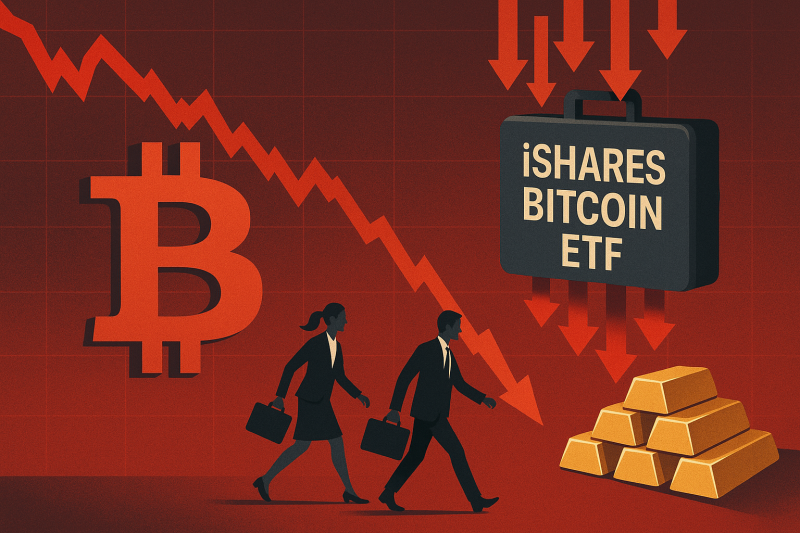BlackRock’s spot bitcoin exchange-traded fund is experiencing its worst month on record, mirroring the steepest decline in the price of bitcoin in more than three years.
The iShares Bitcoin Trust ETF has seen $2.2 billion in outflows so far in November, according to FactSet data as of Monday.
The withdrawals are nearly eight times the $291 million in losses recorded last October, the fund’s second-worst month since launching in early 2024.
The exodus from the fund comes as bitcoin continues to slide sharply.
The cryptocurrency was recently trading at $87,907, down more than 20% over the past month and more than 40% below its early October peak above $126,000.
November is shaping up to be bitcoin’s worst month since June 2022, when the asset tumbled roughly 39%.
Hot money pulls back as market sentiment weakens
The sharp outflows reflect broader risk aversion across markets.
“There’s no doubt that hot-money investments have had significant outflows,” said Jay Hatfield, CEO and portfolio manager at Infrastructure Capital Advisors, in a CNBC report.
He added that the pullback is concentrated in “the gambling part of the market,” with bitcoin serving as the most visible example.
Investors have been shifting funds into traditional safe-haven assets such as gold as macroeconomic uncertainties mount.
Recent data from the University of Michigan indicate that consumer sentiment is plunging toward historically low levels.
Meanwhile, markets are awaiting key economic releases, including September retail sales and producer price index figures, which could influence expectations for Federal Reserve policy.
Although the CME FedWatch Tool shows traders pricing in better than 80% odds of a rate cut at the Fed’s December meeting, that outcome is far from guaranteed.
The uncertainty has pushed many investors to de-risk, creating conditions that amplify outflows from speculative corners of the market.
Newer ETF investors add to selling pressure
Spot bitcoin ETFs have opened the door for many new retail investors to enter the crypto space.
But these newer holders may also be quicker to retreat during bouts of volatility.
Frank Chaparro, head of content and special projects at GSR, noted that the macro backdrop is prompting broad de-risking, including reduced exposure to crypto and other risk-sensitive assets.
“For newer entrants who came in through the funds, any downturn can be unsettling, they can sell just as quickly as they bought,” Chaparro told CNBC.
This dynamic is contributing to the rapid outflows seen in BlackRock’s fund and could continue to pressure bitcoin in the near term.
Institutional holders may help stabilize the market
Despite the volatility, spot bitcoin ETFs have also attracted more stable long-term investors, including institutions, who may help temper extreme price swings.
Joshua Levine, chairman of bitcoin treasury firm OranjeBTC, said these investors could “dampen some of the extreme downside, but also smooth upside, reducing bitcoin’s volatility as the asset class matures.”
As bitcoin navigates a challenging macroeconomic environment, the divide between short-term retail sellers and long-term institutional holders may shape how the asset performs in the months ahead.
For now, both the cryptocurrency and its largest ETF are confronting one of their most turbulent periods since the recent bull run began.
The post BlackRock’s Bitcoin ETF heading for its worst month with $2.2B outflows in November appeared first on Invezz


